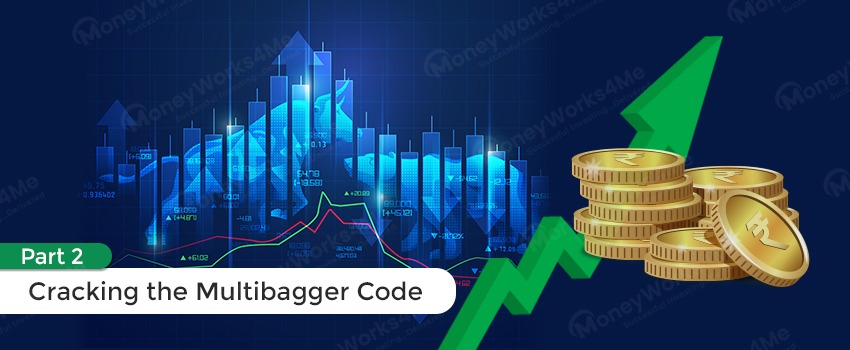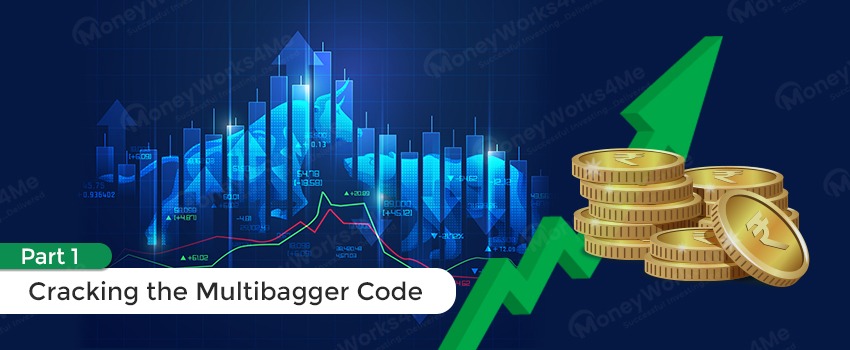One of Bruce Lee’s famous dialogues in the movie Enter the Dragon happens when someone asks him about his style of martial arts. He coolly replies “The art of fighting without fighting.”
Masters of martial arts don’t want to fight and do so only in self-defence and that too as a last resort. Great investors like Warren Buffet say that “Our preferred holding is forever.” So, he doesn’t want to sell the stocks he owns unless he has to.
The question is how do you know when is selling a stock you own the right thing to do?
1. Sell when the company does not seem to be as good as you thought it was.
You bought a business based on research by analysing the data and information you had. When new data, even new to you, points to erosion in the company’s fundamentals, industry dynamics or corporate governance, it’s prudent to consider exiting or reducing the holdings. It’s important to never discard or brush off this data.
However, you should not look at quarterly performance to make this decision. It is all too common for analysts and media to report that a company did not meet analyst’s expectations and the price falls post the result announcement. The whole media industry works on creating hype through analyst expectations before the results and another wave of hype after the results and this keeps happening every three months. It’s the nature of the media-beast
If you have chosen what you invest in with rigour; which means you have a well thought out criteria for investing in a stock; this should not and does not happen very often. But when it does, double check the new data and information and take the decision to sell.
Many a time, there may be situations where you may have to sell at a loss. But it is wiser to cut the weeds before they grow further. Take small caps as an example, they correct more sharply when compared to large cap stocks. However, in case the stock is a large cap, you must further assess the reason for the decreased attractiveness. If the reason points to significant challenges for the company, then you should sell.
2. Should you sell when the market price has run up significantly?
In every market, a stock’s price can surge significantly leading to a disconnect between the price and intrinsic value. We all know that in the long run, the market is like a weighing machine, meaning that the price will be aligned with the fundamentals of the company. Using valuation metrics and performance indicators, you can understand when the stock has become overvalued. The question is should you sell?
Selling when the stock has become overvalued helps us lock the profits and reduce the risk of future underperformance in your returns. It seems wise to trim the position or exit completely and reallocate capital to better opportunities. However, great stocks seldom correct to a level where you will be comfortable to buy them again and most investors are unable to get themselves to do so. A more likely scenario is that such stocks recover and eventually rise beyond the last peak. The trouble is that it is very difficult to assess how long that will take. Some industries are cyclical which makes it further difficult to understand price movement. What you could do under the circumstances is follow a process.
Here’s one that can help you make informed selling decisions.
1. Categorize stocks as Core and Booster:
At Moneyworks4me we classify stocks into Core and Booster and follow a different buying and selling strategy for them. Core stocks are generally large cap stocks which are market leaders in their respective segments. Core stocks generally exhibit non-cyclicality & resilience to economic downturns.
Booster stocks are generally small cap stocks with high growth potential. In a positive economic scenario, they tend to rise very high and very fast. However, these stocks are not yet very resilient to economic downturns and as a result, correct more than Core stocks. A good portfolio always has a majority in Core stocks for stability with some 20%-40% in booster stocks to increase returns.
It also takes longer for Booster stock companies to deliver attention-grabbing performance and for these stocks to rise again to a new peak, it requires a bullish market environment. So, it makes sense to sell booster stocks when they are highly overvalued. But for that you need to know when it is highly overvalued. As the word ‘overvalued’ suggest, there is an inherent fair-value against which a comparison is made.
2. Use an Effective Anchor to assess if a stock is overvalued
As with almost all buying and selling decisions there is seldom a unique, scientifically right price which guides us. However, we need something to help us decide and so we somehow arrive at a price that we consider fair and are willing to pay. This is called anchoring.
This Anchoring bias which humans have can work in positive or negative ways. In the past, if you had your eye on a stock and the price has risen since then, you will feel that you may wait for the price to come back to the previous level, which may or may not happen. This also happens when you need to sell and may think you should wait for the previous peak of the price to come to take a sell decision, which, for all practical purposes, may not happen.
This indicates that you are anchored to a past price.
Alternatively, if you had bought a stock and then the price fell, or the stock has not moved for a long time, you may think that this stock is not a good investment. This indicates that you are anchored to a past experience.
Rather than taking decisions on price movement of a stock, we should use valuation metrics like relative valuation or the stock’s intrinsic value as an anchor and take buy/ sell decisions accordingly.
Relative valuation, simply put, is comparing the specific stock’s valuation metrics with the median of the industry, its peer group, or its own historical values. While this is easier to arrive at, it is driven purely by its market price. Intrinsic value is more challenging in nature and is generally done by a trained equity research analyst. Intrinsic value is the present value of estimated future cash flows the business will generate. However, this has several underlying assumptions. It would be prudent to check both its Relative and Intrinsic Valuation and then decide if a stock is overvalued.
3. Sell only if you must but follow a process
Overvalued does not mean it good price to sell. It means you probably shouldn’t be buying. If you have selected high quality stocks they are bound to be overvalued at some point of time. The time to sell could be when the price is so high that you are more likely to get poor or mediocre returns beyond that price. In other words, the upside beyond this price is low to very low, even lower than your FD rate. Now this is not easy to conclude. But if you can have a process that informs you about this, even if just gives you an estimate. For example, sell 50% of your holding of Core stocks when the price is 50% higher than its Fair value and the rest when it is 100% higher. Have another thumb rule for your Booster stocks.
Selling is one of the most difficult decision an investor makes. You are not going to get it right all the time, perhaps not even half the time. The best thing you can do is buy only the best and sell only when you must use some of the ideas presented above.
Investing in the Indian equity market can be rewarding as well as challenging. You need to follow some basic principles and practices to make informed, prudent, and profitable decisions. You can also seek professional guidance or advice from experts or platforms such as MoneyWorks4Me.com that can help you achieve your financial goals with ease and confidence.
Start investing wisely with expert guidance now.
Best Stocks From:
Top 10 Stocks for 2024 Best EV Stocks in India Screener Alpha Cases Best Solar Energy Stocks in India Top AI Stocks in India Best Drone Stocks in India Best Sugar Stocks in India Top 10 Infrastructure Stocks in India Best Fintech Stocks in India Top Media Stocks in India Best Data Center Stocks in India
*Investments in the securities market are subject to market risks. Read all the related documents carefully before investing.
*Disclaimer: The securities quoted are for illustration only and are not recommendatory





 02067258333
02067258333 +91 9860359463
+91 9860359463 




